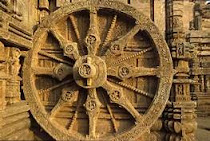Reason and Cause

Reasoning is to understand, cause is explanation What is difference between reason and cause? Looking to a lightening in dark sky and in heavy clouds- ‘B’ said that lightning is caused because god is angry. ‘B’ added that whenever god is angry (cause) thunder and lightning started (effect). But ‘C’ on other hand said that to understand the phenomena of lightning it is important to understand the essential requirement of clouds and rattling of clouds. The reason for lightning is there is some charge electric in clouds. The difference between ‘B’ and ‘C’ is not only the process of thinking but also the way they came out. Mostly we take both reason and cause as synonyms and that make great fallacy of judgement. These two words ‘reason’ and ‘cause’ is treated in Hindu philosophy as different but mistakenly taken as same and therefore collapsing the meaningful treatise of Indian Philosophy. Reason is generally taken as thinking, understanding and logically reaching a con...








